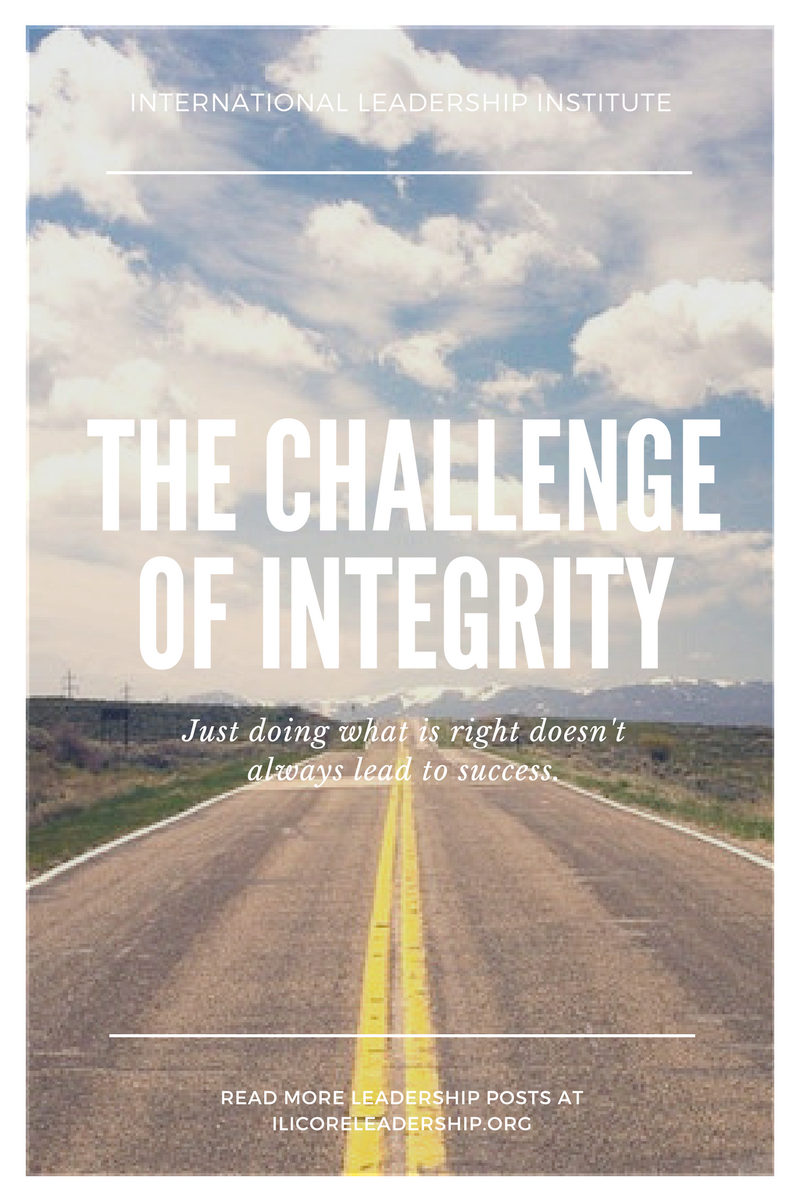THE CHALLENGE OF INTEGRITY
Corruption, embezzlement, Ponzi schemes, moral scandals, the list goes on and on. The most significant challenge of leadership in our generation is integrity. It is not a new challenge, though. The Apostle Paul was onto something when he said “For I do not do the good I want to do, but the evil I do not want to do—this I keep on doing” (Romans 7:18). He figured, given the right circumstances, our human nature will naturally drift toward the "easy way out," even if this means taking the sinful option.
Not convinced yet? Consider these options: Given the right circumstances what would you choose?
A fresh salad or a juicy, greasy steak (covered with lots of butter).
A wholesome movie or a hot, sexy one (come on, nobody is watching).
Pay the speeding ticket or get away with a small bribe (after all, he suggested it).
Good Intentions are Not Good Enough
A deep commitment to a life of integrity is where it all begins, but the reality is, the desire to do what is right will not guarantee success. We need a system of checks and balances outside of ourselves to keep us in line. This is why accountability is essential to maintain our integrity. You and I need four levels of accountability to guard our integrity.
Accountability to God
Have you ever seen the picture of the guy on a computer and Jesus looking over his shoulder? Just knowing he is there may not be enough to keep us completely safe, but it is a good start. It’s even better if we begin to talk to Him (pray). We will go a long way by cultivating a life of prayer and intimacy with God where our struggles and even defeats are confessed with a sincere heart. Memorize scriptures and even repeat prayers, such as the “lead us not into temptation” part of the Lord’s Prayer, are also great tools.Accountability to Ourselves
We can certainly be our worst critics, but a wholesome dose of self-examination is helpful. The fourth of the 12 steps of the Alcoholics Anonymous calls it “doing a searching and fearless moral inventory of ourselves.” (http://www.aa.org/assets/en_US/smf-121_en.pdf) At the end of every day, a good look back at our ways and especially the little things we allowed in our lives can help us stay out of trouble – one day at a time.Accountability to an intimate Few
I believe this is our best protection. Having one or more close friends who can look us in the eye and ask us the tough questions is the best tool to keep our holiness. It is even better if we have a small group of like-minded Christians who commit to keeping each other accountable on a regular basis.Accountability to the Body of Christ
Are you a Christian leader, a pastor, bishop, apostle? Are you one of the “top guys” in your organization? Reporting regularly to our Church, board of directors, or leadership team can remind you of your oaths, commitments, calling, and your responsibility to the rest of “the Body.”
“I” can’t do it. “We” can
The bottom line is you and I can’t do this on our own. Building a line of defense against the loss of integrity requires exposing ourselves to God and to others. The result will be a leadership that will last and leave an enduring legacy.
NOTE: We believe this subject is so important that we want to explore it in more depth. For the next four weeks, two of our ILI global leaders will help me share our unique perspective on each of these levels of accountability. Make sure you don’t miss it.














Data and information are essential for knowing how effective your organization or ministry is, but knowing the right data to measure is the most important key to your success.